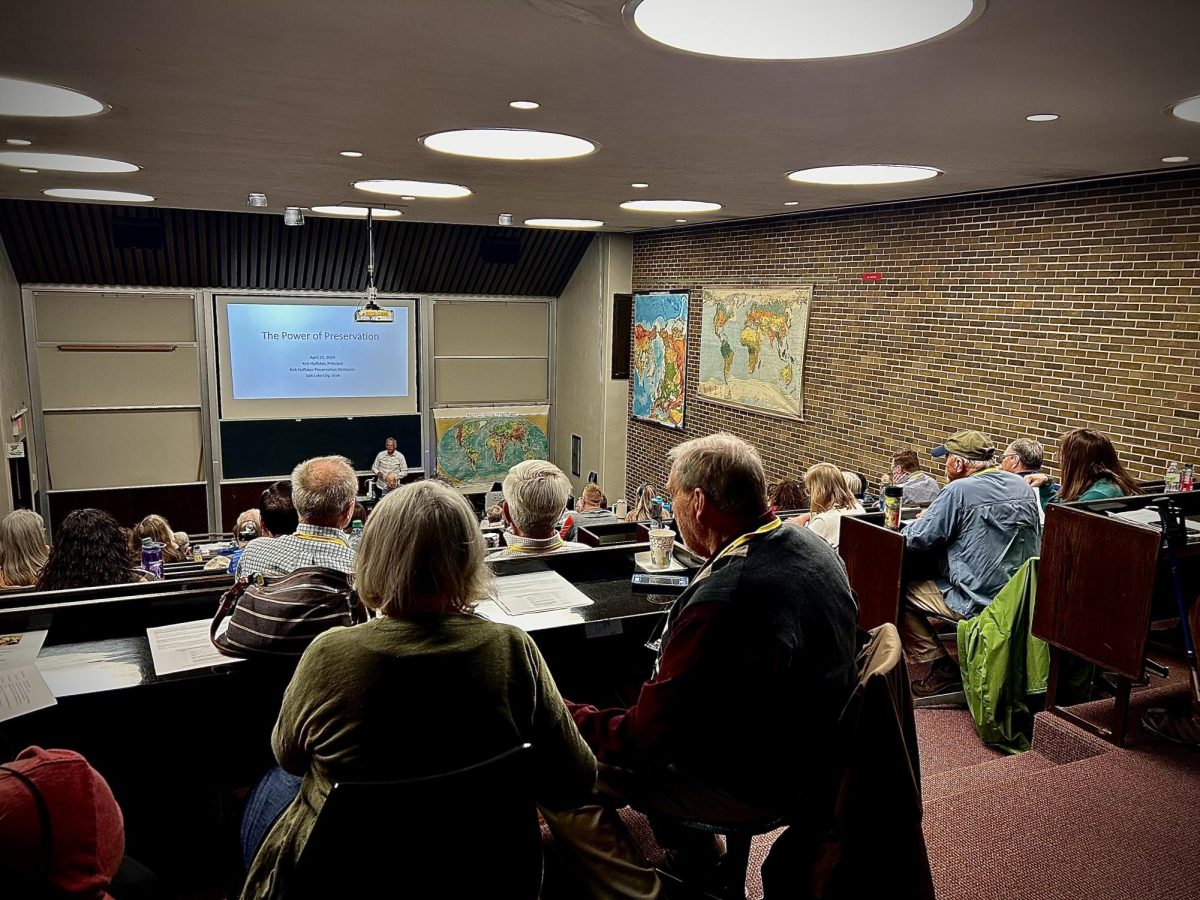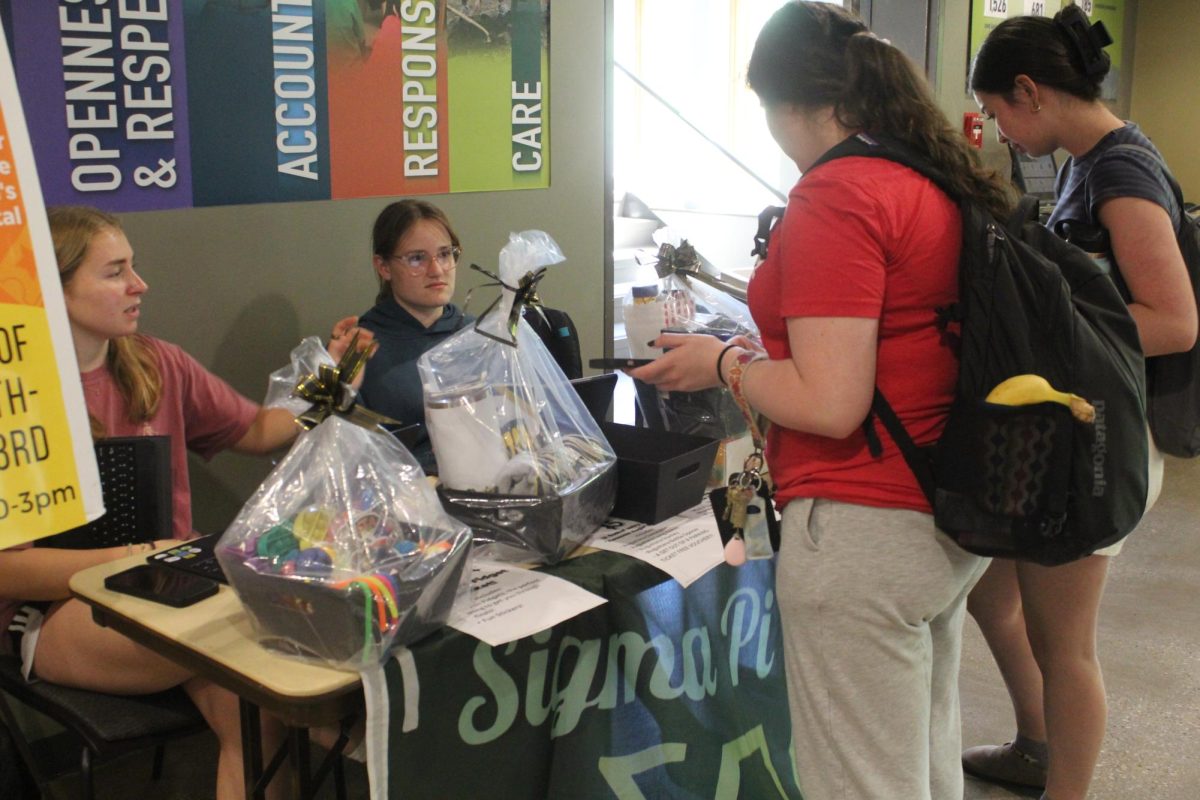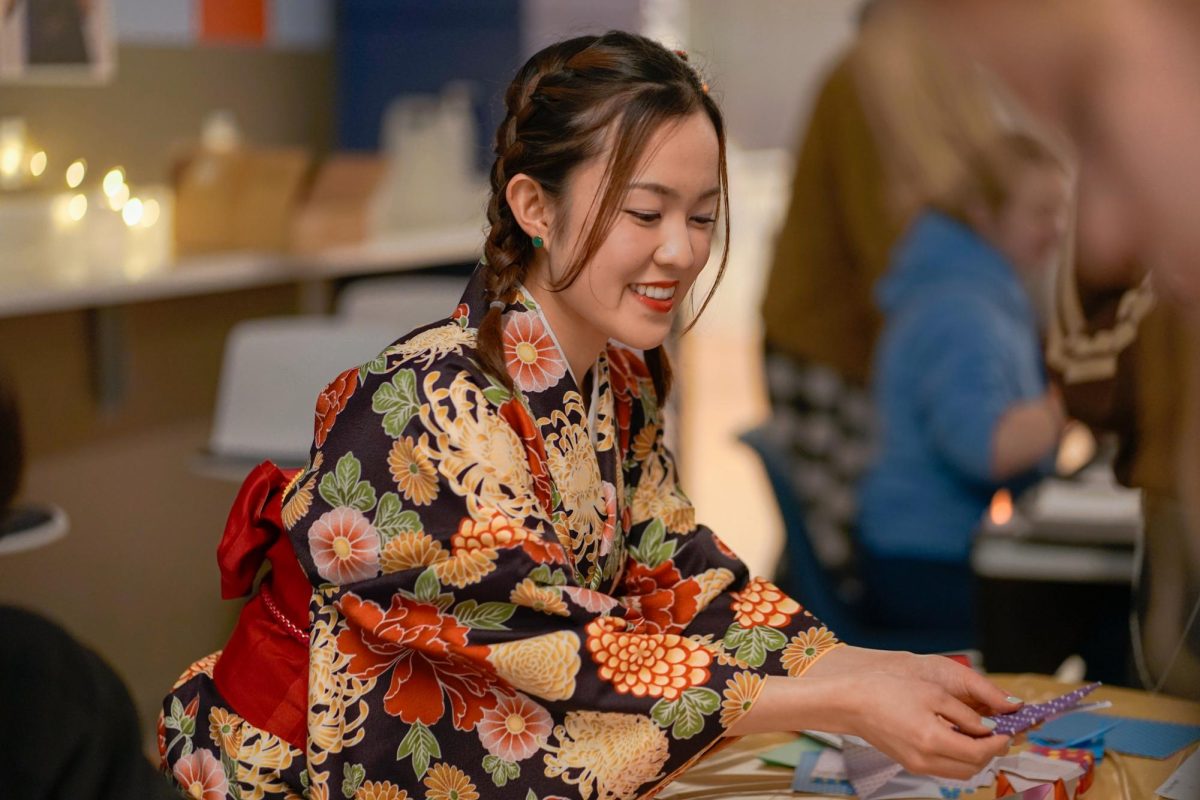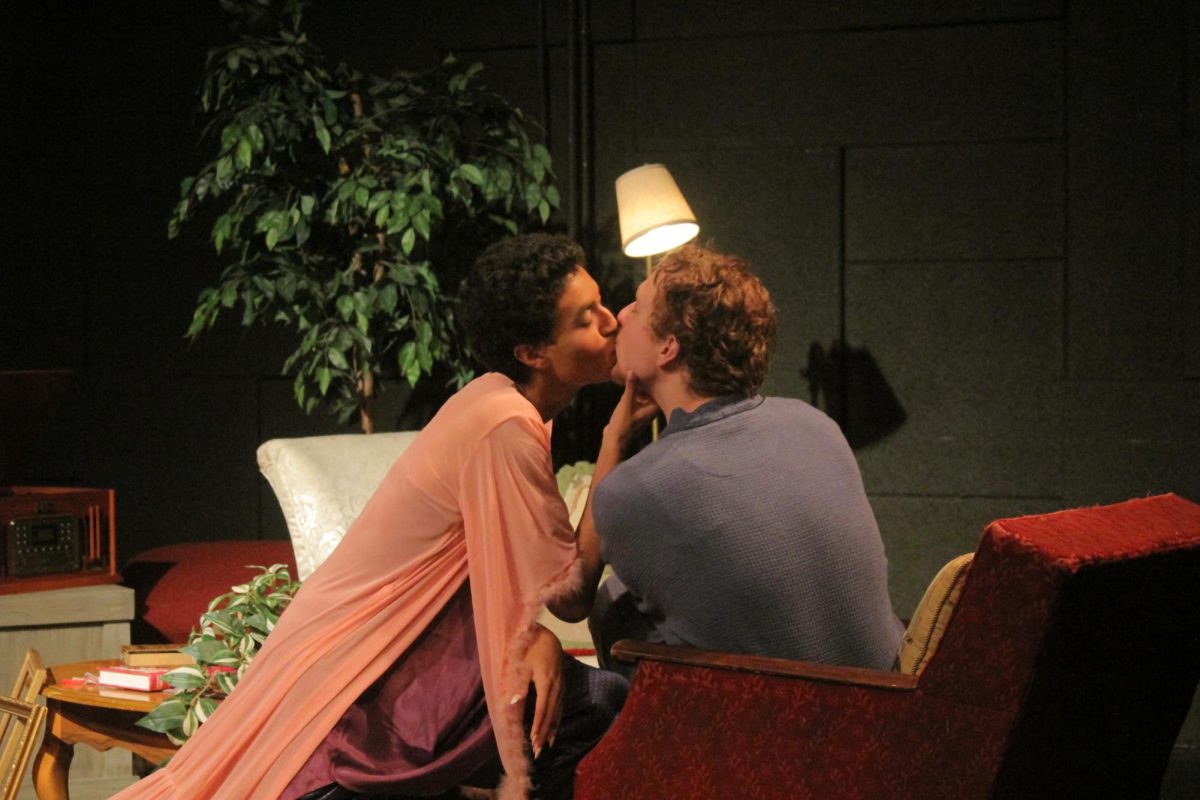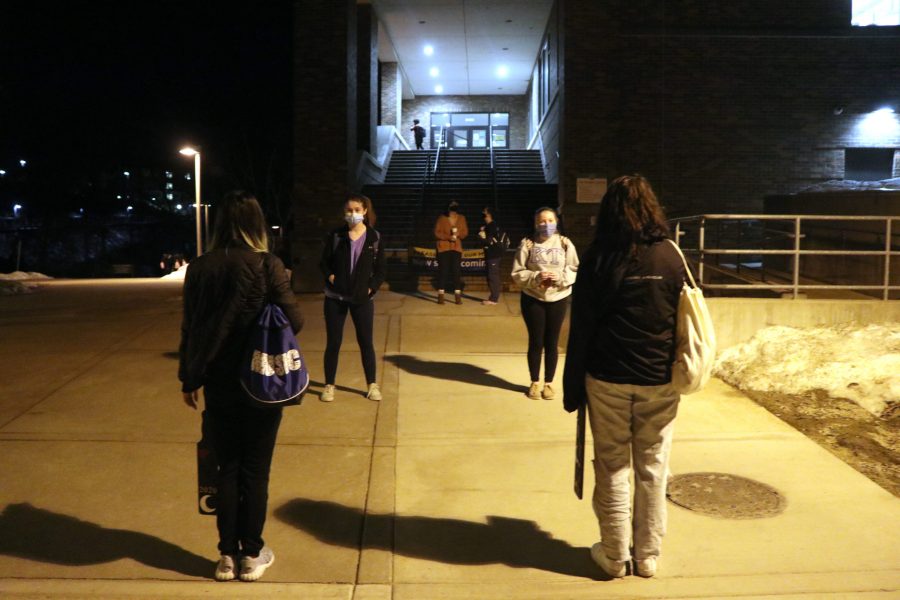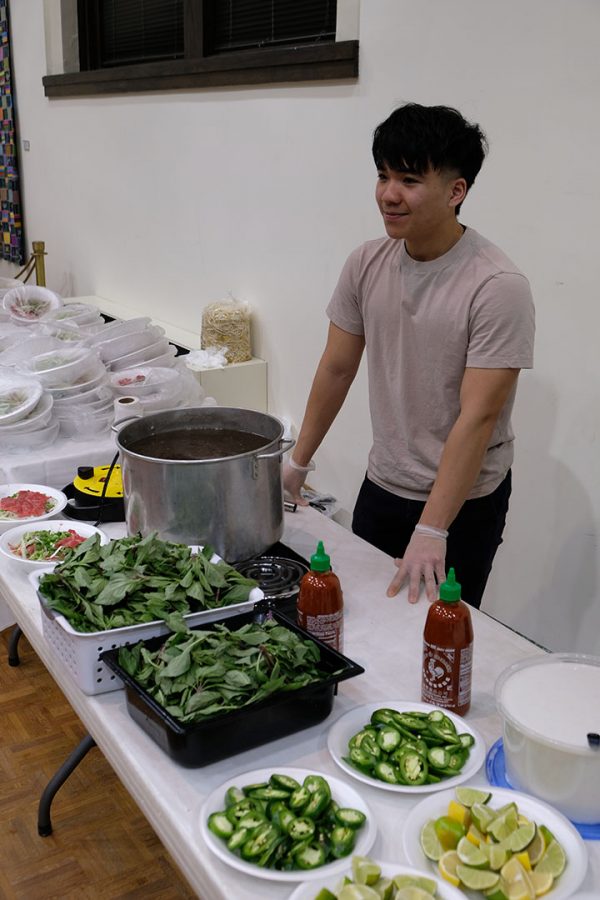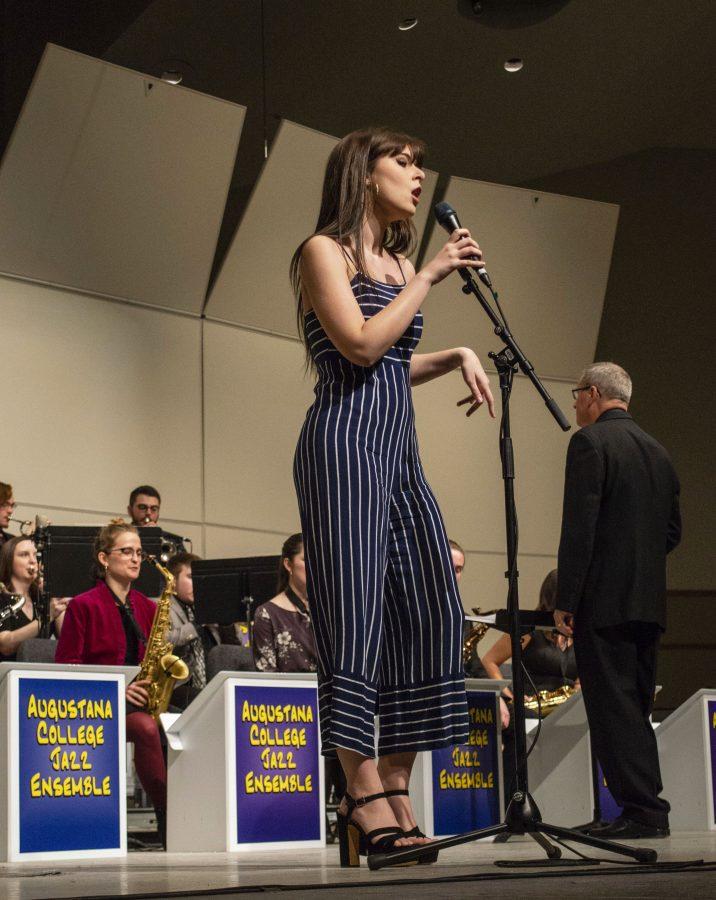
Sophomore Jamie Fee helps Augie Acres plant a prairie for the bees Tuesday afternoon. The garden helps to not only protect the bees but it also provides flowers for the bees.
Augie Acres, with the help of Tierney Brosius, assistant professor of biology, have started up two bee hives near campus–with a total of 20,000 bees.
The six pounds of Carniolan honeybees, which include two queen bees, were purchased from Ebert Honey Company, LLC in Lynnville, Ohio, and installed Saturday at Augie Acres by Phil Crandall of Crandall Farms, Inc.
Brosius said the idea for bees on campus was partially hers, but also came from students Jamie Fee and Cleo Bubulka.
“Having student involvement was really key for me,” said Brosius. “I don’t think I would have gone into it quite so enthusiastically if I hadn’t had students who I knew were going to be
involved.”
While buying produce at Augie Acres last year, Brosius saw old bee hives that the club, which grows pesticide-free crops and plants in its garden, used a few years ago.
Brosius always wanted to keep bees, and after finding out that Fee and Bubulka were interested in purchasing bees, they set out to install two bee hives.
There are countless ways for using bees at Augustana, Brosius said.
And one of the advisers for Augie Acres, Brian Leech, an assistant professor in history, said one use for the bees is for use within Augie Acres’ garden.
“The best part for Augie Acres about it is that bees are just fantastic for pollinating plants and helping things grow, and so in some ways having bees next to a garden is an ideal idea,” said Leech.
Augie Acres’ garden is located at 6th Avenue and 34th Street.
Brosius will use the bees as a resource for one of her entomology classes next year, too, which studies cultural and social
insects.
“I think it would be really interesting for those students to actually get to see inside of a hive if they want,” she said.
She said next year, the bees could produce enough honey to start giving to the Center for Student Life (CSL) and Brew by the Slough.
“I think it just would be neat for students to have honey that’s actually been produced here at Augustana,” she added.
Brosius also said she wants to possibly bring a “viewing hive” to elementary schools like Longfellow, located on 7th Avenue.
A viewing hive is a portable bee hive enclosed in glass.
The bees were purchased through a $500 Green Grant, allocated to Global Affect by Royal Neighbors of America.
Two beekeeping suits were also bought through funding in Augustana’s biology department.
“My favorite thing about the purchasing of the bees is that they literally get sent in the mail,” said Leech.
Leech credits the new hives to Brosius, plus Fee and Bubulka, who “were dedicated to learning a fair amount themselves so that they could start keeping the hive(s).”
Brosius, who took a beekeeping class in February, said the decision to have two hives rather than just one is because “the only way to really know how healthy your hive is to have a comparison.”
Leech said the long-term plan is to add a third hive, since three is ideal.
The collective decision, with help from Crandall, to purchase Carniolan bees was made for a couple reasons.
“There are several breeds and the reason we chose this breed is because they’re supposed to be relatively even tempered…and they’re also supposed to over-winter pretty well,” said Brosius.
Carniolan bees are native to Europe.
The bees are a learning opportunity, Leech said.
“You can learn about organic gardening techniques by doing them; you can learn about beekeeping them through doing (it),” said Leech. “So, once we get the bees set up, the idea is that we’ll have students who will be continually training to learn the practice of beekeeping so they’ll tend to the hive and harvest
honey.”
“It’s just an amazing experience to open up a hive and see the sheer number of bees inside there,” said Brosius.
Augie Acres buys 20,000 bees
May 1, 2015


